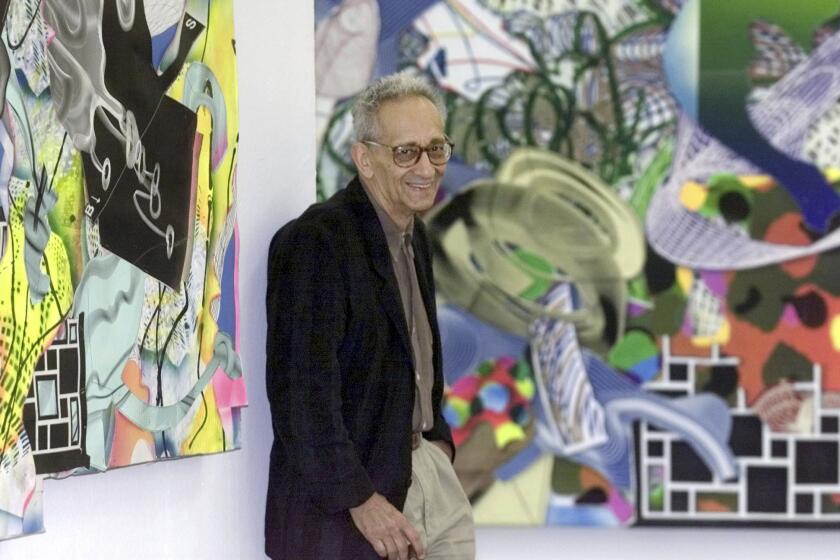Claude Berri, French filmmaker and actor, dies at 74
Claude Berri, the French filmmaker who was a fixture in his country’s film industry for more than 50 years and is perhaps best known for directing “Jean de Florette,” which earned him international acclaim, died Monday. He was 74.
Berri, whose short film “Le Poulet” (The Chicken) was awarded an Oscar in 1965, was hospitalized Sunday in Paris and died of what his agent, Dominique Segall, described as a “cerebral vascular” problem -- language often used to describe a stroke.
He was in the midst of making “Tresor” (“Treasure”) -- his 20th directing project -- when he fell ill. According to Segall, the film will continue “despite his departure.”
Director Claude Lelouch said on Europe-1 radio that, with the death of Berri, “We are losing perhaps the most important postwar French producer.”
Berri “knew how to remain a spectator. . . . He always made popular movies, but he aimed high,” Lelouch said.
“Jean de Florette” (1986) and its sequel “Manon of the Spring” (1986) were among his biggest box office hits as a director. Both films were adapted from novelist Marcel Pagnol’s vision of greed and revenge in the French countryside. He also directed “Germinal” (1993), adapted from the Emile Zola novel about the horrors of coal mining and a 19th-century strike.
It was as a producer that Berri most often made his mark. He produced scores of films, including Roman Polanski’s “Tess” in 1979 as well as Jean-Jacques Annaud’s “The Lover” (1992), and Milos Forman’s “Taking Off” (1971), and “Valmont” (1989). His last produced film, released in 2008, “Welcome to the Land of Shtis,” was a comedy about a man from southern France who warms to the rainy north. The movie sold 4.4 million tickets in its first week, beating all records for a French film and nearly surpassing the box office record, held by “Titanic.”
Berri was “truly a man who took big risks,” said actor Francois Berleand on France-Info radio. He was referring to another offbeat film produced by Berri in 2007, “La Graine et le Mulet” (“Couscous”), directed by Abdellatif Kechiche. The film, about an Arab immigrant in Marseille who opens a couscous restaurant after losing his job, won France’s highest award, the Cesar, for best film.
Berri, whose birth name was Claude Langmann, was born July 1, 1934, in Paris’ 10th arrondissement. He worked briefly in the furrier business like his father Hirsh Langmann before gravitating toward theater. He changed his name to Berri -- derived from his mother’s maiden name -- and became a film student and then an actor.
In 1953, he appeared in his first movie, Claude Autant-Lara’s “Le Bon Dieu sans Confession” (“Good Lord Without Confession”). He then played in movies by noted director Claude Chabrol and others before making his debut as a director with the short “Le Poulet.”
His first feature film, “The Two of Us” (1966), was a semi-autobiographical telling of Berri’s own childhood as a Jew under Nazi occupation.
Among those he directed was “Lucie Aubrac” in 1997 about a female hero of the Resistance during World War II.
In 1987, he started his own production company, Renn Productions. He served as president of the prestigious Cinematheque from 2003 to 2007.
Berri also was one of France’s best-known art collectors, owning works by Pablo Picasso, Fernand Leger, Salvador Dali and Alberto Giacometti, as well as by living artists including Richard Serra and Richard Prince. He opened a gallery in Paris last year, the Espace Claude Berri, where he showed works by living artists whose works he owned.
Survivors include two sons, Thomas, a producer, and Darius. Funeral arrangements were not immediately known.
More to Read
Start your day right
Sign up for Essential California for the L.A. Times biggest news, features and recommendations in your inbox six days a week.
You may occasionally receive promotional content from the Los Angeles Times.






